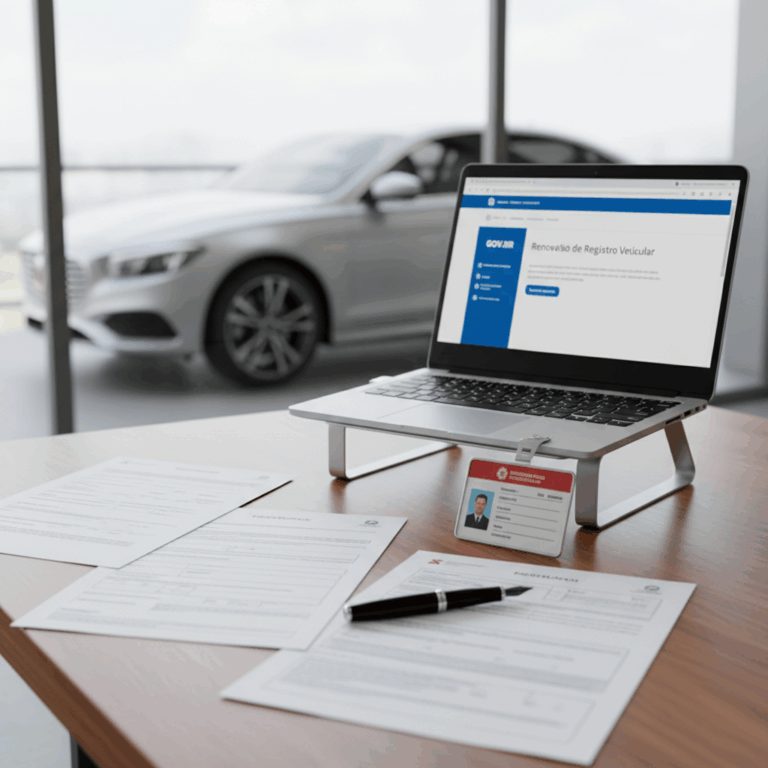Understanding Renewal Notifications
Renewal notifications play a crucial role in ensuring the legal registration of your vehicle continues without interruption. These notices provide essential details about the renewal process.
They inform vehicle owners about deadlines, required documents, and applicable fees, helping to avoid penalties and lapses in validity.
Key Information in the Renewal Notice
The renewal notice typically includes your vehicle’s current registration details along with the expiration date. It also lists all necessary documents to prepare for the renewal.
Further, it specifies the acceptable methods to submit your renewal, such as online, mail, or in-person options, streamlining the process for the vehicle owner.
By carefully reviewing this notice, you ensure compliance with local requirements and gather essential information about fees and timelines.
Deadlines and Applicable Fees
Renewal notices clearly state the deadline to complete your vehicle registration renewal, often recommending starting the process up to three months in advance.
Failure to renew on time may result in fines or a lapse in legal vehicle use. Fees vary depending on vehicle type and region, so the notice provides exact amounts due.
Timely payment of fees as outlined in the notice guarantees uninterrupted registration and legal circulation privileges for your vehicle.
Essential Documents for Renewal
Gathering the correct documents is essential to complete your vehicle registration renewal smoothly and legally. The requirements may vary depending on your location and vehicle type.
Commonly, you will need to provide official identification, proof of insurance, and the current vehicle title or registration card. These ensure your eligibility and compliance for renewal.
Official Identification Requirements
Renewal processes generally require a government-issued photo ID, such as a driver’s license or passport, to verify the identity of the vehicle owner securely.
Some jurisdictions may request additional verification, such as proof of address or social security information, to confirm residency and registration eligibility.
Proof of Insurance and Vehicle Title
Providing valid proof of insurance ensures the vehicle is covered under mandatory liability policies, a key aspect for legal road use.
The vehicle title or current registration card must be presented to confirm ownership and that the vehicle is registered with the correct details.
These documents protect against fraud and help maintain accurate records on file with the registration authority.
Additional Documents Depending on Location
Depending on the region, you may need additional forms, such as emission test certificates, safety inspection reports, or payment receipts from previous renewals.
Special requirements may also apply to commercial vehicles or vehicles with special permits, so verify local rules to gather appropriate documentation.
Interesting Fact
Some areas require a recent photograph of the vehicle or the owner as part of the renewal package to enhance identity verification and prevent forgery.
Renewal Submission Methods
Choosing the appropriate method for submitting your renewal application is critical to a smooth process. Different options cater to various preferences and convenience levels.
Whether you opt for online, in-person, or mail submission, understanding the steps involved in each method ensures timely completion and legal compliance.
Online Renewal Process
The online renewal method allows vehicle owners to complete registration from home via the official transit authority’s website, saving time and avoiding travel.
This process typically requires uploading digital copies of required documents, entering personal and vehicle information, and paying fees electronically.
Online renewal is efficient, often providing immediate confirmation and sometimes offering options to print temporary permits until the official documents arrive.
In-Person Renewal Procedures
Renewing in-person involves visiting designated offices such as the Department of Motor Vehicles or authorized centers, where staff assist with document verification.
Scheduling an appointment is often recommended to reduce waiting times, and bringing all required documents and payment is essential for a successful visit.
In-person renewal allows direct interaction, where questions can be answered and additional requirements, like psychophysical aptitude reports, may be submitted.
Mail Renewal Option
The mail renewal option enables submission by sending the necessary forms and documents via postal service, offering convenience for those unable to travel or lack internet access.
Applicants must carefully follow instructions, include all required paperwork, payment, and ensure the envelope is addressed correctly to avoid delays.
This method usually takes longer for processing compared to online or in-person renewals, so starting early is advised to prevent expiration of registration.
Additional Renewal Considerations
Beyond basic documentation, certain renewals require additional steps like submitting psychophysical aptitude reports to ensure drivers meet health standards.
Planning your renewal process early is vital to avoid penalties and maintain uninterrupted vehicle registration and legal driving privileges.
Psychophysical Aptitude Reports
Some locations mandate a psychophysical aptitude report to verify that drivers are physically and mentally fit for operating a vehicle safely.
This report often involves medical evaluations and cognitive assessments and is essential for drivers of certain vehicle types or over specific ages.
Submitting this report on time helps avoid delays and demonstrates compliance with safety regulations for continued registration.
Recommendations for Timely Renewal
Start the renewal process at least three months before the expiration to manage document preparation and appointment scheduling without stress.
Check local requirements carefully, keep a copy of all submitted documents, and consider setting reminders to prevent missing deadlines or incurring fines.







